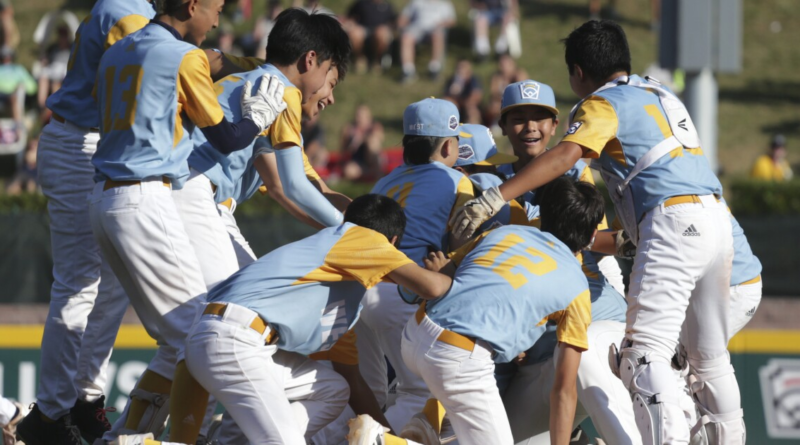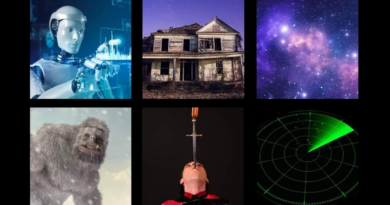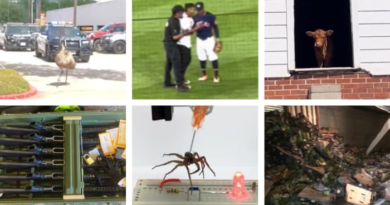The weird, wild and wonderful stories you might have missed this year – news.wgcu.org
There’s always room for a little more good news.
As we look back on 2022, we wanted to share a few of our favorite moments of joy from the year to bring a bit of hope, whimsy and humor to your end of year festivities.
Here are a few bits of weird, wild and wonderful news for you to enjoy from across NPR’s network of newsrooms!
Back in 2018, Laura Young was in an Austin Goodwill when she found a marble sculpture stashed under a table for $34.99. She bought it and brought it home. But after some Googling, she discovered her sculpture was actually a portrait bust that was previously on display in a German museum in the 1920s and ’30s.
So how did it get to Texas? Here’s what KUT’s Matt Largey found out.
Noodling, which is when one catches catfish with their bare hands, became legal in Louisiana in August. Not like that’s stopped anyone before.
WWNO’s Kezia Setyawan explains.
It’s believed that a clam garden — a traditional Indigenous way of boosting shellfish production — hadn’t been built in the United States for close to 200 years. A few dozen people in work gloves and rubber boots gathered on that small island about 50 miles north of Seattle during one of the lowest tides of the year, and rock by rock, brought the practice back.
What they built has long since disappeared beneath the waves, but as KUOW’s John Ryan explains, that’s exactly how it was meant to be.
A wave of post-pandemic nostalgia has brought back the pinball machine, an arcade game, typically seen in bars, malls, and now basements.
From competitions to a resurgence of pinball repair companies and a growing number of collectors, KCUR’s Carlos Moreno discusses how this game represents “the last pieces of Americana.”
The home has been printed using a material known as wood flour. It’s essentially the waste left over from a sawmill — and mixed together with a binder made from corn.
Maine Public’s Nicole Ogrysko breaks down what this house “made of … bio-stuff” means for the country’s housing crisis.
In 2001, Catherine Stortz Ripley found an old newspaper headline claiming that Chillicothe was the first place to make sliced bread. Since then, this rural Missouri town of 10,000 has reclaimed their name to fame and even declared July 7 Sliced Bread Day, an official holiday.
KCUR’s Suzanne Hogan describes how this innovation not only changed America, but how it reshaped this town’s identity.
Nobody expects a bunch of women in their 40s and 50s to start a rock band — especially if most of them have never played music before. But then, nobody expected a pandemic. Enter: the Lazy Susans.
WBUR’s Joanna Weiss shares the story of how this mom group learned to rock.
Earlier this year, the Honolulu team took home the Little League World Series title, but pitching and high run counts aren’t the only impressive feats of Hawaiʻi team members. Their character on and off the field has caught the attention of others.
Hawai’i Public Radio’s Sabrina Bodon explains.
“I got you, buddy”
Officer Nelson Silva, of our Marine Patrol Unit, received a call of a dolphin in distress in the Shorecrest area. Officer Silva located a juvenile dolphin that was trapped in a fishing net. Watch the video to see how Officer Silva helped free the dolphin. pic.twitter.com/qI0J2p3zJI
Miami-Dade Marine Patrol Officer Nelson Silva’s body cam caught one of his proudest moments: freeing a young dolphin ensnarled in an illegal grill net.
WLRN’s Jenny Staletovich breaks down the stressful save.
A new company wants to turn our plastic scraps into building materials. ByFusion’s machines use a combination of steam and compression to create the blocks, which they say have an equal insulating R-value to concrete blocks, but a much better K-value, which means the blocks don’t absorb and radiate heat like concrete does.
And as Boise State Public Radio’s Troy Oppie explains, each is a kaleidoscope of single-use plastic.
For more than 40 years, Capital Pool Checkers Association players met up at their clubhouse in Shaw, until spring 2021, when their landlord decided to sell the building, setting the group on the hunt for a new hangout. It wasn’t an easy task given D.C.’s rising rent prices, and the group’s finances — they fund themselves solely on dues from members, whose numbers have dwindled in recent years.
Thankfully, as WAMU/DCist’s Colleen Grablick explains, the world famous crew has finally found a new clubhouse.
This piece was produced by NPR’s Analise Ober with help from Arielle Retting and Emily Alfin Johnson. KUT’s Andy Jechow, KUOW’s Juan Pablo Chiquiza, WBUR’s Meghan B. Kelly, KCUR’s Gabe Rosenberg, Boise State Public Radio’s Lacey Daley, WLRN’s Katie Lepri Cohen and WAMU/DCist’s Chris Chester all contributed to this piece. contributed to this story
Copyright 2023 NPR. To see more, visit https://www.npr.org.




 This year in odd news: The weirdest headlines from the Houston area in 2022 – KPRC Click2Houston
This year in odd news: The weirdest headlines from the Houston area in 2022 – KPRC Click2Houston